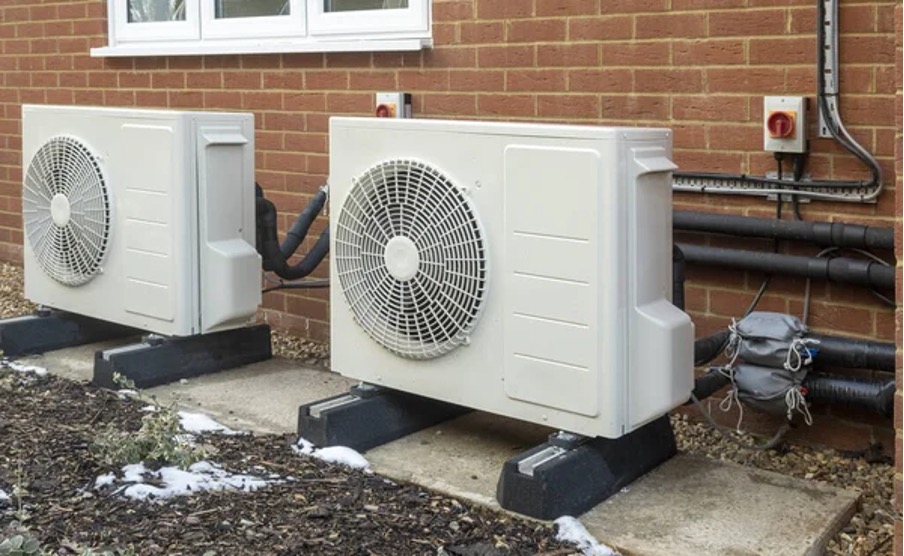Are Heat Pumps too noisy for UK Homes?

Government's Ambitious Heat Pump Plans Challenged by Noise Concerns
The British government's ambitious goal of installing 600,000 heat pumps annually by 2028, as part of its commitment to achieving 'Net Zero' carbon emissions, has encountered another setback. Concerns have been raised by the Department for Environment, Food and Rural Affairs (Defra) regarding the potential noise levels generated by these pumps in residential areas. To address this issue, Defra has initiated a £6 million noise-mapping project aimed at understanding the impact of heat pumps on people's well-being.
Heat pumps, which are typically positioned outside homes, emit a constant hum ranging between 40 and 60 decibels, comparable to the noise generated by a refrigerator or dishwasher. However, there are apprehensions about the cumulative effect of a large number of heat pumps in a concentrated area, which could result in excessive noise levels for communities. To investigate these concerns, Defra has undertaken the task of gathering comprehensive information on noise levels across roads, railways, and urban regions throughout the country.
Rebecca Pow, the Minister for Environmental Quality and Resilience, expressed Defra's communication with the Department for Business and Trade, stating, "Whilst Defra is responsible for protecting the environment, an awful lot of the levers are in other departments. We've highlighted the issue of noise, so now they've commissioned a piece of work and research into the impacts of the noise."
Heat pumps operate by pumping compressed air from the outside into homes. However, sound experts note that the combination of fan noise, motor hum, and air conditioner condenser unit buzzing can cause disturbance. This effect is amplified in freezing conditions, and the units can also produce vibrations, further contributing to the noise levels.
Mike Foster, CEO of the Energy and Utilities Alliance, an organization representing the utilities industry, called for large-scale trials to determine the impact of multiple heat pumps. Foster remarked, "We are aware of the concerns around noise emitted from heat pumps. If the Government really cared about consumers, they would order a large-scale trial, with every home having a heat pump fitted, to test the cumulative noise levels of mass heat pump installations. Instead, they seem to be putting a Whitehall target for ripping out boilers for heat pumps as their priority. The interest of the consumer comes second best."
The Department for Energy Security and Net Zero, in response to the noise issues raised, acknowledged the ongoing review and expects its completion by summer. The review will examine whether improved design can reduce noise volume and evaluate the necessity of positioning heat pumps in a manner that minimizes sound impact.
A department spokesperson emphasized the potential of heat pumps as a proven and scalable option for decarbonizing heating. They stated, "Heat pumps are a proven, scalable option for decarbonizing heat. These are located outside the home and typically have sound levels similar to a fridge. We have seen incredible innovation over the past decade, particularly in noise reduction, and are reviewing this to ensure planning rules keep pace with advances in technology."
Homeowners can currently receive grants of up to £5,000 to facilitate heat pump installation, but uptake has been sluggish. The cost of purchasing and installing a heat pump generally ranges from £7,000 to £13,000.
The government's commitment to transitioning to heat pumps for heating purposes aligns with its long-term carbon reduction goals. However, addressing concerns about noise pollution is vital to ensure the acceptance and success of this renewable energy solution among the public. Through the ongoing noise-mapping project and subsequent research, Defra aims to find ways to mitigate the potential noise impact of heat pumps in residential areas, enabling a more sustainable and harmonious transition to low-carbon heating solutions.